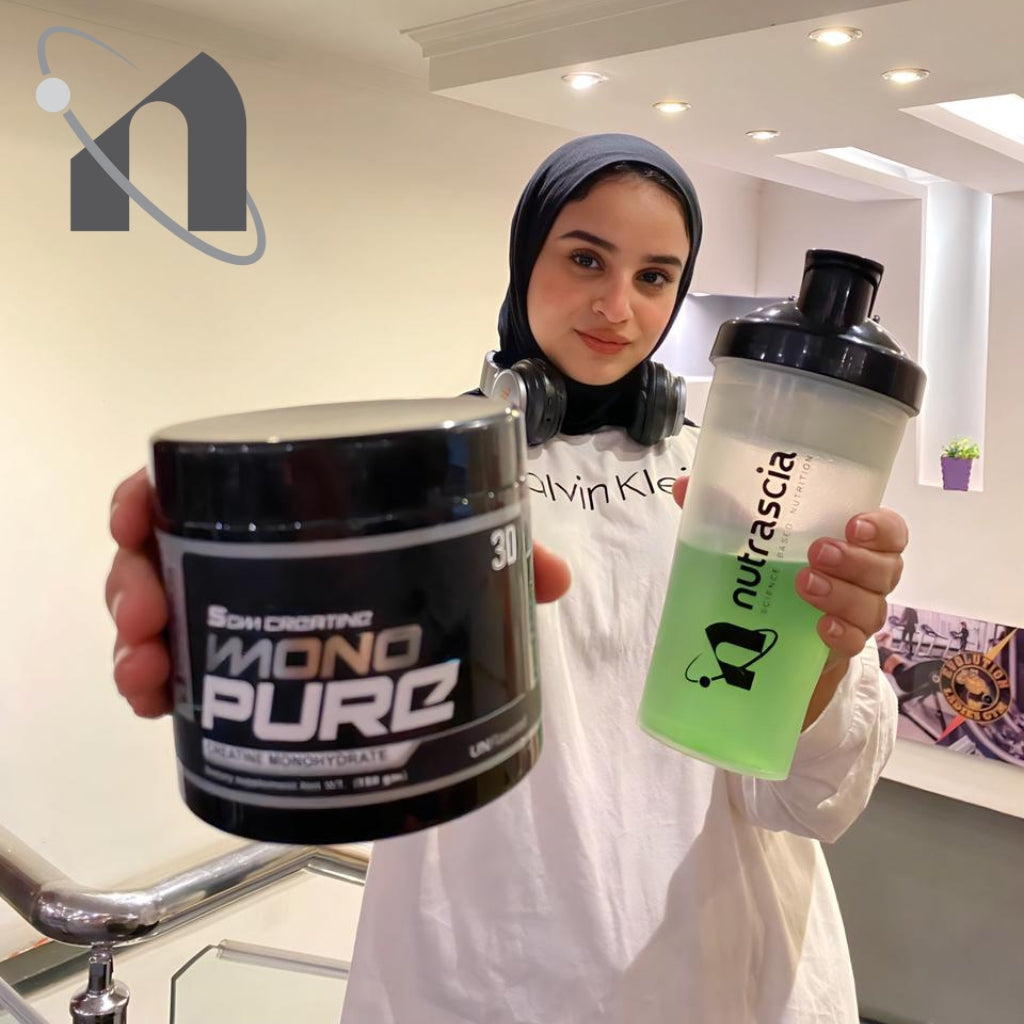Protein is not just a dietary essential; it's the backbone of a healthy lifestyle. Understanding different types of protein and their unique benefits can help you make informed choices to optimize your health and fitness goals. Today, we'll delve deep into the world of protein, exploring everything from its role in your body to the different types available for supplementation.
What is Protein? Protein is a macronutrient made up of amino acids, the building blocks of your body's tissues. It's crucial for the repair and growth of muscle, skin, and other body tissues, and it plays a vital role in producing enzymes and hormones.
The Role of Protein in the Body:
- Muscle Repair and Growth: Protein is essential for muscle recovery after workouts and for muscle growth.
- Hormone Production: Many hormones, which regulate bodily functions, are proteins.
- Enzyme Production: Enzymes that catalyze biochemical reactions are also proteins.
Mechanism of Action: Dietary protein is broken down into amino acids, which are then utilized to build new proteins, repair tissues, support immune function, and more.
Amino Acids
Protein itself consists of amino acids... more than 20 acids. The body can form these acids from scratch or modify the type that enters to form what it needs. Except for 9 essential amino acids, the body cannot make or modify these and must obtain them externally as they are to use them and complete the processes of building and repair. This means that the source of protein you use must contain all 9 complete, or you will need to rely on more than one source to get all 9 complete throughout the day, otherwise, you or your child could face risks like muscle atrophy, growth problems, immune deficiency, heart and respiratory weakness, and others. Thankfully, we have many sources that contain all twenty types of amino acids complete, like meats, poultry, fish, dairy products, and eggs. But some people eat only vegetables and do not eat meat. Here we must be aware that vegetables, fruits, grains, and nuts do not contain all 9 complete... each type is missing one or more types. So in this case, you must vary the sources you eat to get all 9 complete. But this does not prevent that some types have complete protein like chia seeds and quinoa.
Daily Protein Requirements:
An adult should consume daily 0.8 grams of protein per kilogram of their weight. For example, if you weigh 80 kg, you should consume 64 grams of protein per day. A child should take 1 gram of protein per kilogram, so if a child weighs 30 kg, they should take 30 grams of protein. Let's translate this gram issue here to avoid confusion... A quarter kilo of milk, for instance, contains about 8 grams of protein, an egg about 6 grams, and a chicken thigh about 30 grams. You can look up the type of protein you are eating, and you'll easily find on the net how many grams each type contains.
Athletes' protein needs can reach up to 2 grams per kilogram of their weight, and we will explain this in detail in another post.
Those who can meet their full protein needs are in good shape; those who can't start to make up the difference with ready-to-drink protein like whey protein, casein, and others.
What are the commercial types available to achieve this goal?
Whey Protein:
- Definition: A complete protein derived from milk, rich in all essential amino acids.
- Mechanism: Rapidly digested, whey protein breaks down into amino acids that are quickly absorbed and utilized by the body.
- Features: High in branched-chain amino acids (BCAAs), particularly leucine.
- Benefits: Promotes muscle growth and repair, especially effective post-workout.
- Uses: Commonly used in shakes and bars for quick recovery after exercise.
- Advantages: Fast absorption, supports lean muscle.
- Disadvantages: Potential allergen for those with lactose intolerance or dairy allergies.

Buy Nutrascia Pro Whey Protein | Best Quality Whey Protein
Casein Protein:
- Definition: Another milk-derived protein that is absorbed much slower than whey.
- Mechanism: Forms a gel when it interacts with stomach acid, slowing down stomach emptying and delaying the absorption of amino acids.
- Features: Rich in calcium.
- Benefits: Provides a gradual, steady release of amino acids, making it ideal as a pre-bedtime supplement.
- Uses: Often taken at night to support overnight muscle repair and growth.
- Advantages: Helps prevent muscle breakdown, aids in long-term recovery.
- Disadvantages: Not optimal for immediate post-workout recovery due to slow digestion

Buy Nutrascia Advanced Casein Protein | And Sustain your gains
Soy Protein:
- Definition: A complete, plant-based protein containing all essential amino acids.
- Mechanism: Extracted from soybeans and is an effective alternative to dairy-based proteins.
- Features: Contains isoflavones, which have potential antioxidant properties.
- Benefits: Supports overall health and is particularly beneficial for those following a vegetarian or vegan diet.
- Uses: Popular in meal replacements and as a dairy alternative.
- Advantages: Plant-based, contains antioxidants.
- Disadvantages: Concerns over phytoestrogens affecting hormone levels.

Beef Protein:
- Definition: Derived from actual beef but processed to remove fats and carbs, leaving a high concentration of protein.
- Mechanism: Provides a high level of the amino acids similar to those found in skeletal muscles.
- Features: Often enhanced with creatine and BCAAs to mimic the nutrient profile of whole beef.
- Benefits: Aids muscle recovery and growth, suitable for those avoiding dairy.
- Uses: Preferred by those on paleo diets or those who require lactose-free options.
- Advantages: No lactose, high in creatine and BCAAs.
- Disadvantages: Ethical and dietary concerns for some users, potential for additives.

Egg Protein:
- Definition: Extracted from eggs, it is a high-quality protein known for its high digestibility and complete amino acid profile.
- Mechanism: Absorbed at a moderate pace, filling the gap between rapid-absorption whey and slow-casein.
- Features: Naturally high in vitamins and minerals.
- Benefits: Excellent for muscle repair and overall health maintenance.
- Uses: Popular in protein powders and as a food supplement for those allergic to dairy.
- Advantages: Contains naturally occurring vitamins and minerals.
- Disadvantages: Potential allergen for those with egg allergies.

Conclusion: Choosing the right type of protein involves considering your dietary preferences, any food allergies, and your specific health and fitness goals. With the detailed information provided, you can make informed decisions about which protein type might best meet your needs, helping you to optimize your nutrition for better health and performance.
Stay tuned to our blog for more in-depth articles on nutrition and wellness strategies tailored to your lifestyle!



Leave a comment
All comments are moderated before being published.
This site is protected by reCAPTCHA and the Google Privacy Policy and Terms of Service apply.